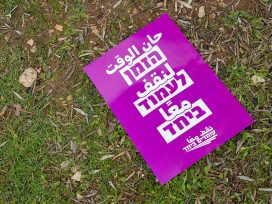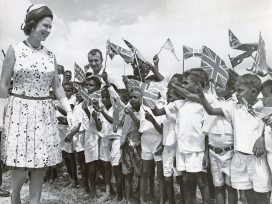Last year, Ukraine, along with Russia, became the most dangerous place in the world for journalist to work
In June this year, just one month after launching his Web site Kriminalnaya Ukraina, Oleg Yeltsov was questioned by Security Service agents. Articles from his series From the Life of Derkatch Family examining business ventures of the former SBU (Scurity Services of Ukraine) chief Leonid Derkatch and his son Andry, caught SBU attention. Without much ado, SBU began an investigation into a possible violation of Ukraine’s criminal code for divulging classified information online.
The mechanics for muzzling journalists may differ from one case to another, but the outcome does not vary . After ten years of independence, Ukraine has virtually no independent press. President Leonid Kuchma is listed as one of the ‘Ten Worst Enemies of the Press’ in the Committee to Protect Journalists’s 2001 report. His reputation was considerably damaged by his alleged involvement in the murder of the opposition journalist Georgy Gongadze who disappeared on 16 September last year and whose death is still unresolved (Index Index 1/01&2/01). Kuchma emerged from the scandal unscathed.
The development of Ukraine’s post-independence media follows a pattern familiar in many countries in East and Central Europe. From the ‘sweetness of unlimited freedom’ to ‘growing disillusion’ as economic constraints limit its development and the state imposes legal and financial constraints. In a environment of progressively slower political and economic reform, the media struggled to liberate itself from government control.
The fragile economic climate hampered the rapid growth of new media outlets. By 1993, inflation was up to 10,000%, advertising revenues were minimal, costs of production and distribution soared. As a result, many media outlets got into bed with business or political patrons who offered them financial support. In return, they sacrificed the luxury of independent opinion.
The traditional forms of press finance – subscriptions, advertising revenues and state subsidies – were replaced by semi-official state support for those media that remained loyal to the authorities and unofficial support from shadowy, often illegal elements interested in PR,
said Nataliya Ischenko, a journalist at Krymskoe Vremya.
With the approach of national elections in 1999, interest in the media heated up. Verkhovna Rada (the Supreme Council) elected its four members to the National Broadcasting Council in March 1999, but Kuchma was in no hurry to appoint his four delegates, thus ensuring that the Council could grant no new broadcasting licenses to the his opponents. In addition, the cabinet issued a ‘temporary’ decree that increased the cost of radio frequencies ten times for the period running up to the election. Kuchma received more airtime on television in the final month of campaigning than all 13 of his challengers combined.
In all, the 1999 election campaign was a depressingly familiar saga of the incumbent who tightens his control over the media to retain power. The tax office’s visit to the private television station STB and the subsequent freeze of its bank account two months before the elections was typical of the tactics employed.
And over everything hangs the threat of libel. Many newspapers learned to their cost how high certain individuals estimated their honour and dignity. It cost one journalist his life. Igor Alexandrov, a host on a regional television station in Donetsk, was sentenced to a five-year ban from working as a journalist and fined the equivalent of US$1,250 for libel by the Donetsk court. Oleksandre Lechinski, a parliamentary candidate, attributed the Central Commission’s decision to annul his election result to Alexandrov’s reports in March 1998. Alexandrov had referred to the politician as the ‘uncrowned king of vodka sales in Donbass’ and warned that ‘the more Mr. Lechinski’s business grows, the more orphans and handicapped people we shall have in the country’. Following the withdrawal of Lechinski’s complaint, the case was closed in 2000. But the journalist’s troubles were not over. On 3 July this year, Alexandrov, also director-general of the Slavyanks-based TOR television station, was attacked in the street . He later died in hospital after remaining in a coma for over a week.
Self-censorship avoids such risks and is widely practised. ‘We are afraid of publishing articles that may lead to a law suit,’ says Nataliya Dyachenko, editor of Den. ‘We are afraid of releasing any information unless we have cast iron evidence.’
The editorial policy of many publications is formulated under the pressure of financial and political groups that control them
stated a report from the National University last year. The enigmatic disappearance of Georgy Gongadze put Ukraine’s media in the spotlight for a few weeks last year, the year when, according to Reporters sans fronti�res, with four journalists killed a piece, Russia and Ukraine replaced Sierra Leone as the most dangerous places to work.
Dmitry Kulikov referred to Oleg Yeltsov as Gongadze-2. How many Gongadzes does Ukraine need to sacrifice before it wins the battle for a free press?
Published 21 February 2002
Original in English
Contributed by Index on Censorship © Olena Nikolayenko
PDF/PRINTNewsletter
Subscribe to know what’s worth thinking about.



